Blogs
Stay in the know
Bringing you the latest insights
At Remit, we’re committed to adding value to our extensive network of businesses and professionals in the cloud technology space.
In this section, you’ll find the latest industry news, reports and insights to help expand your knowledge and stay in the know.

02 May, 2023
There has been a decade-long U.S. tech talent growth trend, with the U.S. adding 136,000 tech talent jobs last year, coming to a staggering national total of 5.5 million. One of the critical U.S. tech hubs is Atlanta, Georgia, which has been experiencing considerable growth. Atlanta has a 5.6% concentration for tech talent, ranking 7th for tech talent concentration by industry, with a large number of those with tech skills working in the tech industry in the region. A key marker for Atlanta’s tech scene, however, is its diversity. The city itself is known for its diverse racial makeup, with 48.2% of the population being Black or African American , 41.0% White, 5.0% Asian, and 3.7% identifying as two or more races. Additionally, the city has a relatively young population, with a median age of 34.7 years, which is another key marker of the city’s overall diversity. But how is Atlanta setting the standard for diversity in tech? The outlook The foundation for Atlanta’s diverse tech scene can be summed up by its colleges, culture, and support network for tech businesses. For example, Georgia Tech is one of the top engineering schools in the country, spearheading initiatives for underrepresented populations such as Georgia Tech’s Center for Education Integrating Science, Mathematics, and Computing (CEISMC). Georgia Tech also has prominent research programs in areas such as computer science, robotics, and artificial intelligence. Another example of a strong academic presence contributing to Atlanta’s tech scene is Georgia State University which has a business school offering a program in information systems to prepare students for tech careers. Atlanta also has the second-highest number of black-owned businesses in the U.S. and has been named the number 1 hub in the U.S. for Black-owned businesses, with a high number of these startups concentrated in the tech industry, in part due to the thriving startup culture in the city. Many of the successful startups in Atlanta are led by women, such as Aquagenuity, created by Founder and CEO Doll Avant to leverage AI to help people and cities protect and monitor their water quality. But which areas are Atlanta thriving in when it comes to diversity in tech that are setting the standard? Initiatives and support for tech Atlanta isn’t simply resting on being a diverse city, it’s actively encouraging a number of underrepresented communities to become involved in tech through various programs, initiatives, and other forms of support. When it comes to gender diversity in tech alone, there are the following organisations supporting women in the tech industry and helping to promote greater gender diversity: Women Who Code Atlanta Women in Technology (WIT) Atlanta Women’s Entrepreneurship Initiative (AWE) For LGBTQ+ entrepreneurs, there is the Atlanta Gay & Lesbian Chamber of Commerce (AGLCC), providing networking opportunities and mentorship programs. Another significant support system for diversity and inclusion in tech is the Atlanta Tech Village’s Diversity and Inclusion Council, which is a group within Atlanta’s tech village that focuses on creating a more diverse and inclusive tech ecosystem in the city. For underrepresented entrepreneurs, TechSquare Labs is a startup incubator and venture capital firm that focuses on support through mentorship, funding, and other resources. In short, Atlanta is abundant with support systems for underrepresented groups in tech that are changing the landscape of the industry in the city. It’s full of opportunity There’s a reason why the likes of Apple, Microsoft and Visa have opened offices in Atlanta… There’s a wealth of opportunity in the city because of its diverse tech talent. The strong academic links (as outlined earlier) also play a key role – Georgia Tech, based in Atlanta, produces the most technology graduates per year in the U.S., according to CBRE Research . Add in the resources that businesses have at their disposal to grow and continue developing a more diverse and inclusive environment, and it’s clear that Atlanta’s diversity is the underlying trait of its success. Another key marker of Atlanta’s success is its status as a hub for multiple tech disciplines, including FinTech, cybersecurity, and digital media, from startups to the largest and most renowned companies. For perspective, 70% of all U.S. transactions are handled by payment processing firms located in Atlanta, aptly nicknamed ‘Transaction Alley’, within a sector containing over 200+ FinTech companies and employing over 42,000+ professionals in the state of Georgia. Atlanta is also considered to be one of the burgeoning capitals in the U.S. for high-paying cybersecurity careers, with high growth potential in the sector for professionals and businesses alike. A thriving startup culture As mentioned earlier, there’s no shortage of tech incubators and accelerators for businesses to benefit from, and many of these are geared specifically towards tech startups. Digitalundivided (DID), for example, is one of the first programs in the U.S. that is dedicated to funding and developing startups founded by Black and Latino women called the BIG incubator, with the BIG Innovation Center being opened in Atlanta back in 2016. To date, $25 million in investments were raised and 52 companies have been built. Atlanta Tech Village is perhaps one of the most well-known successes of Atlanta, being launched back in 2012 and continuing to be a hub for entrepreneurial success and founder networking. The #ItTakesAVillage initiative is Atlanta Tech Village’s way of emphasising diversity inclusion, in terms of supporting diverse perspectives and inclusive work environments, in technology. These are just two examples of the support offered to startups that emphasises diversity and inclusion from the offset. There are many more initiatives and programs, from pre-accelerators like Goodie Nation to incubators like TechSquare Labs BuiltxWomen Initiative , further emphasising the culture of support that attracts so many founders and businesses to Atlanta. It’s only going to continue growing As more businesses and professionals flock to Atlanta for its thriving and diverse tech scene, the industry will continue to adapt and grow. The success of the city isn’t accidental – as many businesses and professionals weigh up the costs and benefits of more traditional tech hubs and locations, it is only likely that the likes of Atlanta and other up-and-coming hubs will be viewed as a more viable, attractive option. For tech companies looking for a region bursting with diverse talent and a wealth of support and innovation at their fingertips, Atlanta is the key to growth. Get in touch At Remit Resources, we use our approach to recruitment to fill the gap between a traditional agency and consultancy by focusing on development, infrastructure and infosec. We can identify your talent needs and provide you with recruitment solutions through our global network – if you’ve got ambitious growth plans for your business, we could be the perfect recruitment partner for you. Get in touch today to find out more.

By Richard Morgan
•
28 Apr, 2023
As skills and labour shortages continue across the tech industry, there’s a prevailing question for tech companies to consider… How can companies stay ahead in the new era of talent competition in tech? Economic uncertainty and a recent influx of high-profile layoffs in big tech have left many businesses scrambling away from, rather than towards, recruitment as a competitive advantage during such a tumultuous period. The post-pandemic impact is still influencing the hiring market in tech, with a continuing demand for tech experts to keep up with post-pandemic digitisation and an ever-widening skills gap in areas such as cloud computing, AI and ML. Yet, to prepare for a potential recession or any level of economic uncertainty, it is vital that companies understand the necessity for a sustainable and streamlined talent strategy. So, how can you stay ahead of the new era of talent competition in tech? Take a look at our step-by-step guide below. 1. Re-evaluate what you’re looking for When many businesses think of hiring or recruitment, they think of how to attract talent, analyse their skills, and onboard them (and hopefully, retain them, too). Whilst there’s no issue with this process in a general sense, it ignores the importance of aligning your approach to hiring talent with your long-term business goals. In other words, how can you find talented tech candidates that are a good cultural fit that can contribute to wider company goals, whilst also aligning with its values? Adjusting your approach to stay ahead of the new era of talent competition is reliant on this shift because it will not only help to fill current roles in your business, but to define the qualities and skills for future roles also. Important questions to get your organisation started include: Does your organisation plan to expand in the next few years? If so, how does talent influence your organisation’s ability to expand (this could include the next year or even the next five years depending on your growth plans)? Where does your organisation need the most support? (e.g., if you intend to shift more of your workforce to a hybrid model, this may mean you’re looking for cloud computing skills primarily) Which skills are the most vital in helping you to meet business goals and objectives? Which values are integral to the direction your organisation is moving towards? (e.g., if diversity and inclusion are key to the future of your company, how do a candidate’s values tie in with this?) The best way to approach this is to keep in mind that there are the skillsets/qualifications you need to identify alongside your awareness of your organisation’s future. 2. Make recruitment an active process In such a competitive hiring market, waiting for candidates to apply to your organisation will not only barely scratch the surface of your hiring needs, but it’ll also result in a talent pool that isn’t diverse or necessarily aligned with your requirements. Instead, you should focus on building an active talent pipeline. This means actively finding candidates through different sources, including: Social channels: Whilst platforms such as LinkedIn are usually top of the agenda for sourcing candidates (whether active or passive), other social platforms like Facebook, Twitter and Instagram can be used to attract candidates through organic and paid social efforts. Additionally, online tech forums can be a great place to locate tech talent. Referrals: Referral programs are a great way to reward current employees for referring candidates, particularly since current employees have a strong idea of the cultural and skill fit required for a role. Networking events: Another method that provides access to both active and passive candidates, approaching candidates at in-person events can be a more personable way to connect with talent and build a network that can be referred to at a later date for suitable roles. A recruitment partner: Even with a variety of recruitment channels to work with, it can bring some much-needed peace of mind to work with a recruitment partner that not only knows tech but also knows the landscape of the current hiring market, candidate expectations, and the best approach to securing top talent. 3. Boost your employer brand In a candidate-driven market, your employer brand is extremely important in highlighting the benefits of working at your organisation, whilst also conveying its values and culture. How can you go about boosting your employer brand to attract tech talent? Showcase your values and vision together: Candidates are your target audience in this case, which makes conveying your values and vision an integral part of attracting this target audience. This information should be consistent across your marketing channels. In other words, where do you want to be and how will your values help to get you there? This should be a consistent and concise message. Highlight employee benefits : Though employee benefits are a separate entity from your branding, they work together when done effectively. Benefits tie in strongly with values, for example, if an organisation strongly values work-life balance, then benefits such as flexible working or wellbeing support would go hand-in-hand with this. Involve current employees: Employees are the best advocates for your business when it comes to attracting new talent. By getting current employees to speak about their experience working at your business, you can have a wealth of content to use across your website, social media channels, and other marketing collateral. 4. Don’t limit your recruitment efforts It can be tempting during periods of uncertainty and high competition to scale back your hiring and recruitment efforts. However, this usually means that you’ll rush the process when it is necessary and rarely have the desired outcome, meaning you’ll likely end up spending just as much in the long term. This approach also has a knock-on effect on your overall organisational productivity, as it is a firefighting, all-hands-on-deck approach that isn’t sustainable. Instead, you should focus on: Building a network of candidates: As mentioned earlier, when interacting with candidates across various channels, it’s important to nurture these relationships even when there isn’t an immediate hire in mind. This is the best way to build a sustainable talent pipeline. A consistent employer brand: In the same way that your recruitment efforts shouldn’t solely be during specific periods, neither should your employer branding efforts. You need to consistently market your employer brand across your marketing channels and during interactions with potential candidates. Staying ahead of trends: The current challenges – flexible work, economic uncertainty, a candidate-driven market – are unlikely to disappear over the coming years, but that’s not to say new challenges won’t arise. It’s important to keep an eye on how these challenges act as barriers to your ability to stay ahead in the new era of talent competition in tech so that you can plan for them. Let us help At Remit Resources, we use our approach to recruitment to fill the gap between a traditional agency and consultancy by focusing on development, infrastructure and infosec. We can identify your talent needs and provide you with recruitment solutions through our global network – if you’ve got ambitious growth plans for your business, we could be the perfect recruitment partner for you. Get in touch today to find out more.

14 Apr, 2023
From difficulties hiring to high levels of competition, tech businesses aren’t short of issues when trying to scale up. During such critical periods, tech businesses are looking primarily to scale up, rather than to grow, as the first involves increasing revenue without incurring significant costs and the latter requires new resources and additional costs. It’s time to scale your tech business… So what steps can you take? 1. Refine your company culture Company culture is an area that often presents significant challenges for businesses… But why? For mid-stage companies looking to scale up, the company will often go from one that is quite tight-knit to one that is considerably larger and includes remote or hybrid workers. Whilst this might not seem like an issue on the face of things, it can often result in employees struggling to work towards the same goals or to feel valued and respected enough to do so. There are a few key issues here to manage in order to scale up Visibility: with remote, hybrid, and flexible working arrangements becoming commonplace, it’s never been more important to implement an approach that prioritises visibility (e.g., regular team check-ins, asynchronous working to adapt to cross-functional teams). Stability: are team members/employees consistently updated or included in communications? Without stability in your communication, employees will struggle to work towards the same goals or stay updated with any company news. Recognition: it’s important to make sure that all employees feel valued and motivated to show up to work, which is why a culture of recognition is so important, whether this is celebrating personal milestones, including recognition in company communications, or a range of employee benefits. 2. Improve your employer brand Employer brand is a critical tool in your recruitment efforts, particularly when trying to expand your workforce and build out your C-suite effectively. There are multiple areas of employer brand that are important when it comes to scaling up, such as employee benefits. In other words, how are you going to reward employees for the skills and expertise they bring to their role? Benefits can cover multiple areas, such as: Education and training: reimbursed courses/tuition, training courses, mentor support Health: vision, dental and healthcare coverage Employee support: mental and physical health resources (e.g., wellness apps, gym memberships) Work-life balance: flexible working opportunities, parenting resources/time off, paid annual leave, subsidised travel 3. Refocus your recruitment strategy Many businesses are reluctant to either change the way that they hire or readjust the structure of their workplace. However, both of these elements are critical to the success (and scaling up) of your tech business. When it comes to the attraction aspect of recruitment, elements such as employee benefits and employer brand (as mentioned above) can be critical factors for hiring in such a competitive landscape. Additionally, businesses should focus on avoiding hyper-specificity when hiring – talent is scarce, and if you’re not expanding your talent pool by adjusting some of your requirements, it’s unlikely you’ll be able to compete for such a narrow demographic. Retention is equally important as employees will act as your advocates when hiring new candidates, and it also keeps your business stable during volatile hiring markets. Retaining employees is equally reliant on the benefits you offer, as this is a competitive advantage that is likely to stop employees from looking elsewhere for better options. 4. Expand globally The talent networks of today are global. Candidates and employees are no longer looking for a fixed-location, 9-5 office job. For many, hybrid and remote working (or any flexible working arrangements) are the new norm, which opens up an entirely new talent pool to businesses. To be able to benefit from this, however, businesses need to work on ensuring that salaries are competitive and that their employer brand is highly visible, alongside employee benefits outlined in job ads. Hiring without the limitations of proximity or geography is often necessary for such competitive hiring markets – tech talent is, after all, a high demand and low supply demographic. Additionally, expanding globally through your talent network means that you can focus on work productivity and quality rather than hours spent in the office, which is better for your business in the long term. 5. Find the right talent partner At Remit, we’re leading talent partners that use an honest, transparent approach to every relationship we build and service we deliver. We use our global network to deliver people with the critical and emerging technology skills you need to continue your rapid growth. Remit is the perfect talent partner for businesses looking to scale up because our mission is to increase your access to the best talent – you can secure people critical to the success and growth of your business easily and efficiently. There’s never been a better (or more critical time) to scale your tech business! Get started We’re a leading cloud talent provider for businesses and professionals across the world, connecting fast-growth start-ups and scale-ups with the most ambitious and talented professionals. Get in touch with the Remit team to find out more about how we can help your business.

13 Mar, 2023
F ew places have a tech scene like Atlanta, Georgia. For those considering relocation to a thriving tech ho tspot, Atlanta has a number of benefits for tech employees of all varieties. As a tech location, Atlanta has slowly but surely risen in the rankings against other US cities due to its strong local academic talent, large number of tech incubators, and affordability (relative to other top locations). Beyond this, Atlanta is also known to have a nurturing environment for tech startups, with a significant rise in the number of tech job offerings to account for the high number of tech businesses in the region. So, why should you want to work in tech in Atlanta, and what do you need to know? High rankings Atlanta’s tech scen e is considered high-ranking across multiple fronts, from its tech hubs to key, big-name corporations setting up shop in the area. Atlanta Tech Village , for example, is home to over 300 startups, has created over 7,300 jobs, and its startups have raised $1.2 billion in capital. Beyond the advantageous hubs within Atlanta, there is also the current workforce to consider. Between 2010 and 2019 tech employment in Georgia grew by 25.4% , with tech workers making up 7.7% of the state’s workforce. Atlanta is also one of the most diverse tech communities in the US , with the percentage of Black or African American workers totalling 22%, Hispanic or Latino workers at 4%, and women at 28% in 2021. An increasing number of companies are also offering options to work from home. There was an 82% increase in the number of job postings for tech occupations that offered work from home/remote work as an option . For those looking for job roles relating to emerging technologies, such as artificial intelligence, blockchain, IoT and robotics, Atlanta is also an ideal location for its percentage of job postings relating to this area (29.3%). Thriving Fintech scene 70% of all US transaction s are handled by payment processing firms located in Atlanta, with the city being nicknamed ‘Transaction Alley’. From companies such as Pindrop and Bitpay to Global Payments, Atlanta boasts an impressive roster of big names in Fintech. Global mobile payments are expected to reach $8.1bn in 2023 , with Atlanta experiencing a significant portion of this growth. According to the 2022 Georgia Fintech Ecosystem report , over 200 Fintech companies employ an estimated 42,000+ professionals in the state, with Atlanta being recognised globally for its market-ready innovations, such as cryptocurrency, risk assessment, and card processing. Add in the number of big-name companies such as Apple, Microsoft, and Cisco announcing an increase in employee count in Atlanta, it’s no surprise that someone looking for a thriving career in Fintech would find one in the city. A great city culture Atlanta has been one of the fastest-growing metro areas in the US, with predictions that the metro Atlanta area will add 2.5 million people by 2040. The city is also immensely versatile, with the Midtown and Downtown districts having a distinct bustling city feel, with skyscrapers and art deco-style buildings, compared to the luxury shopping district of Buckhead. For professionals of all ages, Atlanta is a popular destination for career-minded people due to its thriving culture (particularly in tech, for the reasons listed above). Another benefit of living in Atlanta is that the cost of living is reasonable when compared to other major tech locations like San Francisco. Though it is considered to have some of the best tech jobs in the US, the cost of living in San Francisco is 62.6% higher than the US average . Whilst apartment rentals average around $1,800 per month in Atlanta, according to LifeStorageBlog, in San Francisco the average rent for a two-bedroom apartment in the city is $4,650. Beyond the cost of living, there is also the ease of travel in Atlanta, with the Hartsfield-Jackson International Airport being one of the largest transportation hubs in the world. Cybersecurity excellence The state of Georgia is a top 10 state for cybersecurity , hosting more than 120 cybersecurity companies that are generating over $4.7 billion in annual revenue (almost 25% of the global security market). A joint study by WGU and LinkedIn listed Atlanta as one of the burgeoning capitals in the US for high-paying cybersecurity careers. From security analysts and chief information security officers to penetration testers and security administrators, there are a multitude of job roles available in Atlanta for cybersecurity professionals. The growth potential for this area is vast and for tech professionals looking to level up in a city that will boost their professional growth, Atlanta is the perfect place. The tech industry in Atlanta is growing Though Atlanta is already a fast-growing region for the tech industry, it will undoubtedly continue to grow as more companies, small and large, set up shop in the area. Particularly as conversations continue to arise around diversity in tech, there will continue to be interest in Atlanta as a diverse and thriving tech location. With so many job roles available at such innovative businesses, there are few better locations for you to grow your tech career in! Looking for job roles in Atlanta? You want a role that matches your skills, experience, and ambitions. Remit’s tech recruitment experts take the time to understand exactly what you’re looking for, from your ideal working environment to any skill areas you’re looking to develop, so that we can find you your perfect role in tech. We have a number of roles available in the Atlanta area that you can check here , or you can get in touch to find out more.

21 Feb, 2023
Though the news might be dominated b y stories of layoffs at large technology companies such as Amazon and Meta, there’s a bigger picture emerging – the need for tech talent isn’t decreasing elsewhere. Traditional companies that may have previously struggled to compete for tech talent against the largest companies are now recognising the opportunity that hiring surges present for them. Though a sudden influx of tech talent could be a great opportunity for tech businesses, there are also challenges that will arise, from the high level of competition for specific skillsets and job roles, to the difficulties to not only attract but also retain talent. Let’s take a look at the good and the bad news when it comes to tech hiring surges. Good – new technology isn’t slowing down It might sound like a simple principle, yet it’s true – new technology requires tech talent to keep it moving and adapting. Cloud migration and digitisation are two key trends driving a need for tech talent, which makes hiring tech candidates a top priority. Sustained demand isn’t exclusive to the well-known, largest companies such as Facebook, Google and Microsoft, as investment in technology has expanded far beyond this remit. But why is sustained demand as it relates to new technology a good thing for businesses? Well, it means that though many other companies are considering the possibility of scaling back, talent is still your key to growth! In other words, businesses that stay ahead by acknowledging the necessity for talent rather than treating a hiring surge as a temporary or passing trend are more likely to benefit from better attraction and retention efforts. Bad – higher demand for specific roles It’s not just businesses taking note of tech hiring surges, which means that candidates have a key role in influencing the outcome of these surges. In other words, if tech becomes a candidate-driven market, then the demands on employers will only rise at a time when many are considering cutting costs in anticipation of a recession, or due to other economic factors. Software Engineers, for example, have consistently ranked highly for job de mand (based on the greatest number of paid LinkedIn job posts), alongside DevOps Engineers. Candidates with prior experience in these roles or with in-demand skillsets are likely aware of the high level of competition in securing employees with their talents. This means that businesses can no longer rely on a competitive salary alone to attract and retain candidates; instead, they need to focus on a full breadth of employee benefits, and their value proposition and branding. After all, candidates do have the ability to simply look elsewhere if they feel as though their needs aren’t being met, or their values aren’t aligning with your business. Good – it’s pushing a change in strategy As mentioned above, candidates are simply one factor driving change in tech hiring strategies. A key issue that many companies will face first and foremost is an overreliance on attempting to remain competitive through remuneration alone. If a candidate is receiving multiple offers or counter offers, it’s highly unlikely that salary alone will be the determining factor. Instead, businesses should focus on: Upskilling current employees to fill talent gaps, acting as both a career development benefit and a retention strategy. Highlighting a range of employee benefits, from mental health support to flexible working opportunities. Being more flexible with hiring criteria (e.g. focusing more on skillsets than specific academic qualifications). Working with a specialist recruitment partner that can best inform them of the market trends and secure top tech talent for them. Bad – it requires modernisation The rapid change during the pandemic may have set the tone for the way that many businesses still continue to operate, however this is no longer sufficient. Remote working, for example, shouldn’t just be assumed as sufficient through Zoom calls alone. Instead, efforts should be made to truly modernise the way that your business and employees are working. This includes: Improved cybersecurity Restructuring of workflows Updated software that is adaptable to a hybrid workforce New HR systems Without adapting to a more efficient, modern way of working, businesses will stagnate and struggle to attract talent in such a competitive market. Good – new skill opportunities As with any hiring trends, the skills that are in demand have changed. Harvard Business Review cites the following skills as notable for traditional firms looking for successful digital transformation: DevOps Customer experience Cloud Automation Product and platforms Data management Cybersecurity and privacy These skillsets are highly valuable in overcoming many of the challenges facing businesses during such a critical period, as they can help to keep a business agile and efficient. Bad – many businesses will overlook these opportunities Whilst a degree of apprehension is understandable, the businesses that look to tech hiring surges as an opportunity rather than a source for concern are far more likely to create positive opportunities . Many employees currently working at tech companies may find their position to be tenuous, which means that now is an ideal time to focus on hiring passive candidates. Additionally, the businesses that strengthen their recruitment strategies now will be in a better position to attract candidates that are seeking greater stability. If you’ve not considered shifting your recruitment strategy to account for these surges, now is the time to consider reaching out! What are you waiting for? At Remit Resources, we use our approach to recruitment to fill the gap between a traditional agency and consultancy by focusing on development, infrastructure and infosec. We can identify your talent needs and provide you with recruitment solutions through our global network – if you’ve got ambitious growth plans for your business, we could be the perfect recruitment partner for you. Get in touch today to find out more.

16 Feb, 2023
A tlanta’s tech momentum has been steadily rising in recent years, with Atlanta being named the number 1 Tech Hub Spot by Business Facilities magazine for t wo consecutive years in 2020 and 2021. The success of Georgia’s capital city is no coincidence. Atlanta has been building a strong foundation for its success in tech for some time now, from their approach to corporate innovation to their diverse talent pool. As we move through 2023, what are the factors influencing the tech outlook in Atlanta, and what can we expect f rom the region moving forwards? Diverse talent pool Diversity in tech is hardly a new discussion, yet it is still a key area on the agenda for many businesses in an industry that is still lacking when it comes to ED&I . Compared to other similarly-sized metros, Metro Atlanta has 52% more minority technology workers and 27% more female technology workers . Additionally, Georgia Tech is the leading producer of female engineers in the country, being consistently above the national average for female enrolment in engineering, and ranked second for most engineering bachelor’s degrees awarded to African-American students. Even with these impressive statistics, there are initiatives to encourage STEM education in underserved and underrepresented populations such as Georgia Tech’s Center for Education Integrating Science, Mathematics, and Computing (CEISMC), applying the expertise and scholarly contributions of the Georgia Tech community. It’s not just the academic environment that fosters greater diversity in Atlanta, either. Atlanta’s population is already one of the most diverse in the country, and it is an international hub for multiple tech ecosystems that foster growth at every level, from startups to Fortune 500 companies. As more initiatives are implemented and the diversity of the companies increases in Atlanta, the diversity of Atlanta’s tech talent pool will increase also. Continuing growth With such a diverse, highly skilled tech workforce, it’s unsurprising why the region is experiencing steady growth. One major factor in this growth is the influx of major tech companies opening offices in Atlanta, such as Apple, Microsoft, and Visa. These major companies are capitalising on the skilled, diverse talent available in Atlanta, alongside the ability to connect with a variety of startups in the area. For many businesses, Atlanta is the perfect location due to the potential to increase the diversity of their workforce. As mentioned above, Georgia Tech is a significant contributor to Atlanta’s diverse, skilled talent pool, and it also produces the most technology graduates per year in the US, with Atlanta being listed as the eighth-best city for sourcing tech talent in 2021 . In the past five years alone, Atlanta has seen a 15% growth in tech jobs , compared to 16% for the San Francisco Bay Area and 10% for Austin, Texas. It’s clear that Atlanta is growing significantly enough to be, in many respects , close to a level playing field with the most notable tech cities. High level of support for startups Startups aren’t hard-pressed to find support in Atlanta, with various tech incubators, accelerators, and innovation centres in the area made specifically for them. The Atlanta Tech Village is an example of this, assisting entrepreneurs with support on a one-to-one basis and through access to Georgia Tech resources. Many startups have had significant success in Atlanta, with more than a dozen companies started or based in Atlanta growing to valuations over the past decade above $1bn (the threshold for unicorn status). It’s the perfect environment because there is a great talent pool, an excellent startup environment, and considerable investor interest in tech startups in the region. All in all, not only are startups in Atlanta bound to find a strong sense of support and community, but they’re also likely to experience growth alongside the wider tech industry in the region. Multiple tech hot spots Within Atlanta, there are multiple areas that function as tech hotspots and key contributors to Atlanta’s success as a tech hub. The most prominent of these hubs is Midtown Atlanta, home to Technology Square and one of the most valuable districts in the local tech community. With more than 150 startups and 15 corporate innovation centres alone, it’s not difficult to see why Midtown Atlanta is such a key tech hub! Buckhead is also another area that energises the tech industry in Atlanta, being recognised as the fourth largest tech space in the nation, owing to its renowned tech incubator complex. It’s not just city-based areas, either – Peachtree Corners, a suburban area, is one of the first to be acknowledged for its vast tech opportunities, being home to Atlanta Tech Park which features space for more than 100 companies. There’s no shortage of options for businesses when it comes to locations that suit their needs, each experiencing its own growth trajectory as they expand and adapt. The bottom line Atlanta’s success hasn’t been overnight or fleeting. Year-on-year, Atlanta has built on its success as a tech hub by continuing to perform strongly and attract businesses of all sizes and varieties to the region, which promotes further growth. As many employees also reevaluate their priorities for tech roles, it is likely that the region may begin to overtake the more traditional tech hubs over time. One thing remains certain, though – if you’re a tech company looking for the best region or talent to scale up your business, Atlanta may be the best option for you. Get in touch At Remit Resources, we use our approach to recruitment to fill the gap between a traditional agency and consultancy by focusing on development, infrastructure and infosec. We can identify your talent needs and provide you with recruitment solutions through our global network – if you’ve got ambitious growth plans for your business, we could be the perfect recruitment partner for you. Get in touch today to find out more.

03 Feb, 2023
Whether you’re struggling to keep up with high turnover rates or simply looking to expand your recruitment efforts, there’s no denying that the hiring market in tech is more competitive and fast-paced than ever before. That’s not the only change that businesses looking to hire tech talent are contending with, either. Even as an industry that had many early adopters of remote working, the pandemic undoubtedly increased the demand for more remote roles in tech, and this is only likely to increase over time. What could tech recruitment without borders mean for your business? What does ‘recruitment without borders’ mean? In 2023, we’re in a globalised hiring market – gone are the days of hiring from one location only, particularly at a time when businesses need a competitive edge to hire skilled tech employees. Recruitment without borders simply refers to companies expanding their talent pool by recruiting globally for remote employees. 16% of companies worldwide are fully remote , and 75% of global workers believe remote working is the ‘new normal’. Research has also indicated that whilst the number of workers choosing to work remotely has increased by 24% since 2021, interest in in-office work has dropped by 24%. For employers that are being bombarded with headlines around skills shortages, high competition for talent, and the sheer difficulties of finding the best candidates possible, this could be the solution to their recruitment woes. After all, hiring for remote roles is hardly now a new and unexplored concept… so why not expand your tech recruitment reach even further? You don’t have to compromise on your requirements Though we’d argue flexibility is an essential part of hiring tech talent, given that so many tech employees might not have traditional academic backgrounds or qualifications, there are sometimes elements of a role you don’t want to compromise on. Whether it’s a specific degree or qualification, you might be particularly averse to accepting anything outside of these parameters. Hiring global remote talent means that you are far likelier to have a selection of candidates that will meet these requirements. Instead of focusing only on applicants from nearby locations and having to adjust your expectations, you can instead widen your talent pool and have a higher likelihood of having these expectations met. In other words, you can start finding true, best-fit candidates for your vacancies! Greater productivity Whilst there may have been some debate during the pandemic when mass adoption of remote working occurred around the ability to be productive when working remotely, research indicates this is not the case. In fact, a study of workers during a full year of remote work highlighted that 61% of workers said productivity rose from working remotely. It’s not just employees who feel this way. 32.2% of hiring managers felt that overall productivity had gone up during the remote working period, and as more businesses and workers adapted to remote working, perceptions improved and 68% of hiring managers said it was going better than when they’d first started working remotely. In short, as the technology we use to enable remote working improves alongside our understanding of how to best manage remote teams, productivity will only continue to improve. It saves you time and money Both employers and employees can save time and money through recruitment without borders. Employees no longer have to finance lengthy commutes or feel obliged to live and/or work in busy city centres. Similarly, businesses no longer have to pay expensive rent for office spaces or recruitment efforts that yield no results. The likes of IBM have saved $50 million in real estate costs by going remote, which is no small feat. Hiring remote workers can also reduce absences and turnover, with Global Workplace Analytics calculating that if US professionals, with jobs that could be done remotely did so half the time, businesses could save around $11,000 per employee. It matches employee expectations and increases job satisfaction Tech employees are in high demand and low supply, so it follows that employers should be looking to try and improve their EVP as much as possible. Remote working can be seen as such a benefit to an employee (and their work-life balance) that 1 in 2 workers would take a pay cut of 5% or more to have flexibility in their working location, with 23% saying they would take a pay cut of 10% or more. The same study found that the leading source of stress for employees came from being back in office spaces. Whilst remote working isn’t a miraculous cure to all workplace and recruitment issues, it certainly provides employees with a benefit that is so significant they often view it as more important than financial incentives. Work-life balance is also an essential part of this discussion, as remote work offers employees greater flexibility and balance to stay engaged in their work and enjoy social and leisure time properly as well. You’ll have a wider talent pool to select from A wider talent pool is a major benefit for employers on two fronts. Firstly, it erases geographic constraints and enables businesses to cast their net wider and further, which can make hiring a smoother and less competitive (to some degree) process. Secondly, it provides a diverse variety of candidates at a time when many businesses are looking to improve their diversity, equity, and inclusion (DE&I) commitments. Many of the remote tech employees you end up hiring will have different backgrounds, experiences, and cultures, which means that your team will comprise a rich variety of people rather than people with the same/similar backgrounds. This can encourage greater creativity and more diverse approaches to problem-solving and also attract further candidates based on the greater representation your business will provide due to having a diverse team. What are you waiting for? There’s a remote global tech workforce out there, and we can help you to make the most of it. At Remit Resources, we use our approach to recruitment to fill the gap between a traditional agency and consultancy by focusing on development, infrastructure and infosec. We can identify your talent needs and provide you with recruitment solutions through our global network – if you’ve got ambitious growth plans for your business, we could be the perfect recruitment partner for you. Get in touch today to find out more.

22 Dec, 2022
Tech vacancies are showing no signs of slowing down. For many looking to start in the tech industry, or those looking to change roles, there is a sense of optimism about the industry from an employee perspective. Tech jobs, after all, are perceived as having high job security, generous salaries, and a multitude of benefits that have often been ahead of the curve in comparison to the general workforce (as with remote working, for example). But a tech role hardly comes without requirements – whether it’s in-demand coding skills or the ability to manage a team, tech roles require a multitude of soft and technical skills to meet demands. But which soft and technical skills are currently in high demand in tech, and why? Let’s take a look. It might come as a surprise, but… Many of us would assume that tech skills would be top of the list from an employee and manager perspective for a tech role. Soft skills are considered by both current tech employees and managers to have a higher importance than tech skills (though a balance of both is preferred from a hiring perspective). Soft skills include: Communication Creativity Attention to detail Problem-solving/critical thinking Leadership Patience Time management 42% of tech employees considered soft skills to be very important, compared to only 29% for technical skills. Similarly, 39% of managers considered soft skills to be high value, compared to 27.8% for technical skills. However, it was noted by over half of tech hiring managers (52%) that an even mix of soft and technical skills was important. Critical thinking 89% of managers considered critical thinking to be very or extremely important in their hires. The tech industry can change quickly, meaning that tech employees often have to evolve their understanding alongside their job. Rather than having to retrain employees every time there is a new technology challenge, hiring those with critical thinking skills instead offers a better solution. Being able to think critically about problems and identify potential solutions is an extremely beneficial skill, as it means a tech employee can build on their foundational knowledge. Continual testing and reviewing are also an essential part of tech roles and the development of more technical skills, which makes critical thinking a great soft skill counterpart to the traditional hard skills associated with a role. Roles in cybersecurity and software engineering in particular will be ideal for those with strong critical thinking skills, as they require up-to-date knowledge and awareness of risks and associated risk factors, and the strengths and weaknesses of software. Analytics Data is integral to tech companies from an insights perspective, so unsurprisingly, analytics skills are in high demand. The data analytics market is predicted to surpass $132.9bn by 2026 , and this will drive even higher demand for tech candidates that have analytics skills to make sense of large datasets. Analytical skills are the technical skill counterpart to problem-solving skills, as those with analytics skills generally need to understand data to create rational, creative solutions. From a hard/technical skills perspective, tech businesses are looking for areas of analytics such as: Data visualisation Statistical analysis Data storytelling This brings us to the next skill, which is also a key component to analytics. Communication You’d be hard-pressed to find a job role that didn’t, to some degree, require strong communication skills. In tech roles, however, strong communication is essential from an individual and team perspective. Take analytics skills (as outlined above) as an example. For an employee to convey complex analytical data into digestible takeaways for a team, they need to be able to explain their findings in a way that people unfamiliar with data analysis can understand. Most of the technical skills that tech businesses are looking for require communication skills, because tech employees are rarely working in silos – no matter the role you have in a tech company, the odds are that you’ll be communicating regularly with a variety of other employees. Communication was ranked 2nd in importance (behind critical thinking) by managers when ranking soft skills, with 49% saying communication skills were extremely important. But why have a mix of both? As we’ve touched on already, these skills don’t exist in isolation. Tech hiring managers are starting to recognise the overlap in soft and technical skills that truly make a difference in the value that a candidate can bring to a company. Rather than prioritising hard skills over soft skills, or vice versa, hiring managers are instead looking for a balance of the two. After all, critical thinking skills can enhance an employee’s ability to develop technical skills over time. Similarly, strong communication skills make an employee a valuable asset to a team for the purposes of internal communications, and also from the perspective of conveying technical, often complex, information. The way that the tech industry is hiring is changing Previously an industry associated primarily with technical skills, the tech industry is redefining the way it views and values talent. The core technical skills for tech roles will always be necessary, yet soft skills now act as a key differentiator to hiring managers. If you’re looking for a role in tech, a balance of soft and hard skills will place you in a highly advantageous position for this shift. After all, well-rounded candidates are hard to come by during skills shortages! Find your ideal tech role You want a role that matches your skills, experience, and ambitions. Remit’s tech recruitment experts take the time to understand exactly what you’re looking for, from your ideal working environment to any skill areas you’re looking to develop, to find you your perfect role in tech. Take a look at our vacancies or get in touch to find out more about how we can help.

06 Dec, 2022
The technology industry in the UK is valued at £764bn ($1tn), making the value of the UK tech industry more than double that of Germany, and five times larger than Franc e and Sweden. The rapid digital transformation that took place during the pandemic managed to accelerate the UK tech ecosystem by 42% towards this milestone, catalysing the success of the tech industry at present. This success isn’t limited to the UK – the global tech industry is valued at $5.2tr , with the US having an approximate worth of $1.6tr. Yet even with all of this success, there is a continuing barrier and challenge to the success of the tech industry – gender diversity in tech. What is the gender diversity picture like in the tech industry, and what are the five top ways you can encourage gender diversity in the workplace? The gender diversity outlook in tech Though there has been a renewed emphasis on gender diversity in technology, the proportion of men and women being appointed directors of tech companies in the UK has stayed the same since 2000, according to Tech Nation. Only around 19% of tech workers in the UK are women , though more positively, 22% of tech directors are women, making the gender balance in tech leadership better than that of the general tech workforce. Part of the reason for this disparity is that the gender diversity promoted on boards is generally more publicly scrutinised and integral to public relations than that of the general workforce. Additionally, the quit rate in the tech industry is more than twice as high for women as it is f or men. Removing the barriers to gender diversity in the workplace is essential in reducing this quit rate and increasing the diversity of the industry - but what can you do to make your workplace more diverse? Make a workplace-wide effort Where many companies fall short in their attempts to address gender diversity is their approach of focusing entirely on women in the business (in terms of both tackling the issue and acting as a solution for it). This means that the issue becomes a women-only issue, as opposed to an issue that requires company-wide support and action. For change to successfully occur, it is important to involve men in the response, particularly given that they make up the majority of tech roles. Raising awareness across the organisation and educating every employee on inclusivity and diversity is essential in building a strong foundation for a more diverse business. In other words, you’re looking to create an inclusive workplace culture. Two of the biggest barriers for women in tech, as described by Diversity in Tech, are a lack of mentors (48%) and a lack of female role models (42%) – this means a key area for building a more inclusive environment is representation. Are women within your tech business being showcased equally? (e.g., put forward for promotions, visible in marketing collateral, part of leadership teams). There should also be a conscious effort to equalise pay, and most importantly, consult with existing women in the business to figure out which areas require more changes to be truly inclusive. Advertise roles with diversity in mind The hiring process can be fraught with barriers to diverse talent, particularly during the advertising stage. There are often different elements of job descriptions that will inadvertently speak to men and women in different ways. For example, feminine and masculine adjectives and descriptions can impact the way that job ads are perceived, with research indicating that masculine wording in job advertisements leads to less anticipated belongingness and job interest among women. Examples of masculine-coded words include active, ambitious, and competitive. Examples of feminine-coded words include compassionate, cooperative, interpersonal, pleasant, polite, and supportive. Rather than using experience qualifiers (e.g. ‘8+ years’ experience’), it may be beneficial to use capability descriptions (e.g. ‘we are looking for someone with proven capability leading high-performing teams’). It is also essential to diversify your hiring channels, whether you opt for traditional job boards, social media, or even referrals – to diversify your talent pool, you need to diversify your hiring channels. Add key targets and commitments to your hiring process Firstly, you need to consider if there are key targets or benchma rks your tech company wants to meet as part of its commitment to diversity. Are you looking to have a 50/50 split between male and female applicants when hiring for a role? Are you looking to improve your diversity metrics in a specific duration of time through a range of methods? (It should be noted that it is important not to focus more on diversity from a data standpoint than simply an ethical standpoint for the sake of equality, otherwise this could be seen as performative to potential candidates.) There is also a range of benefits that can be advertised for job roles that appeal specifically to women in tech, such as part-time or flexible working hours. For organisations that are looking for a better, more diverse talent pipeline, there is even the possibility of partnering with a university or creating a graduate program specifically for women. Review your process for any targets or approaches that aren’t aligned with a more inclusive strategy and adapt them accordingly. Don’t just focus on attraction Though it’s important to focus on increasing diversity as a means of attracting diverse talent, it’s equally important to nurture the talent that you already have. Given that the tech industry is so intertwined with continual professional development and training, it makes sense to enhance your current talent pool as part of your recruitment efforts. As an example, current female employees in non-technical roles could be offered the opportunity to be mentored or trained in more technical aspects with the potential to shift roles after cross-skilling. The additional benefit of having women in your tech company already is also the opportunity for feedback – is enough one-to-one support being given? Are there enough training programs/upskilling opportunities offered, and are they inclusive? Giving current employees the chance to adapt and advance in their roles not only empowers them, but also encourages potential candidates due to seeing the commitment your organisation has. Partner with the right specialist tech recruiter Devoting the time necessary to increase gender diversity in your workplace can be difficult, which is why it’s important to consider how a specialist recruitment partner could help. The right recruiter will improve and adapt your current strategy, and combine it with their expert knowledge of the current hiring market to provide the best diverse talent. Get in touch At Remit Resources, we use our approach to recruitment to fill the gap between a traditional agency and consultancy by focusing on development, infrastructure and infosec. We can identify your talent needs and provide you with recruitment solutions through our global network – if you’ve got ambitious growth plans for your business, we could be the perfect recruitment partner for you. Get in touch today to find out more.

